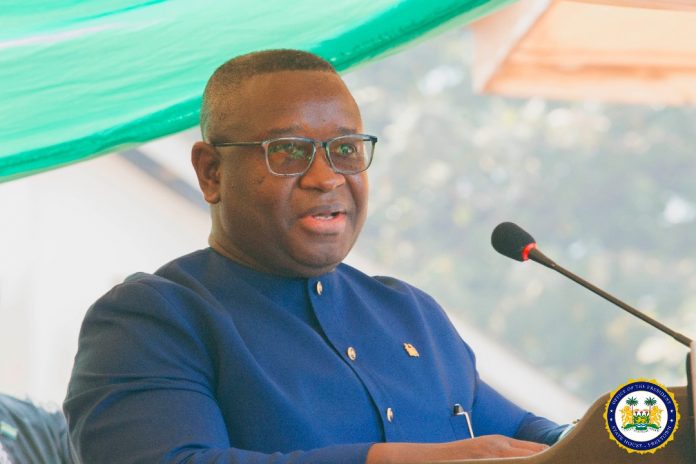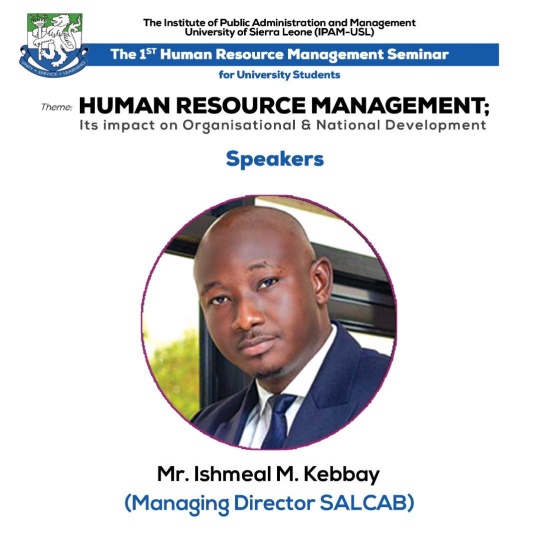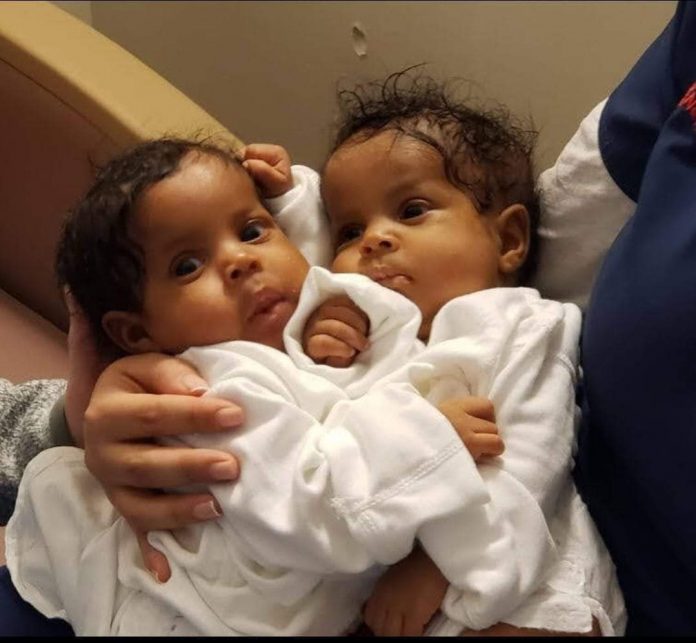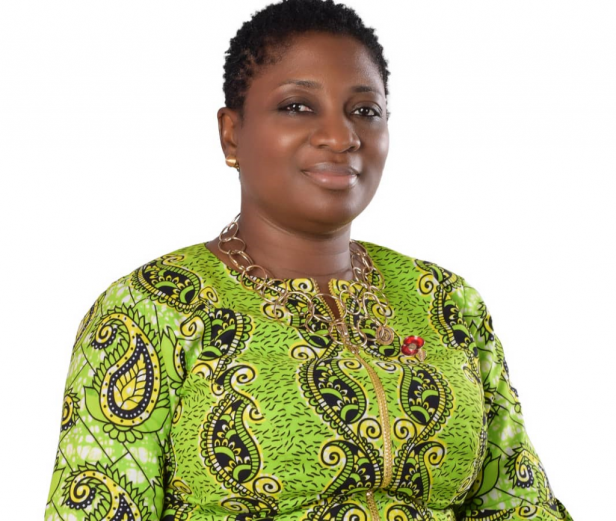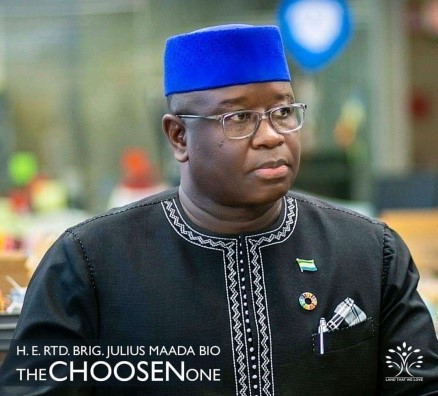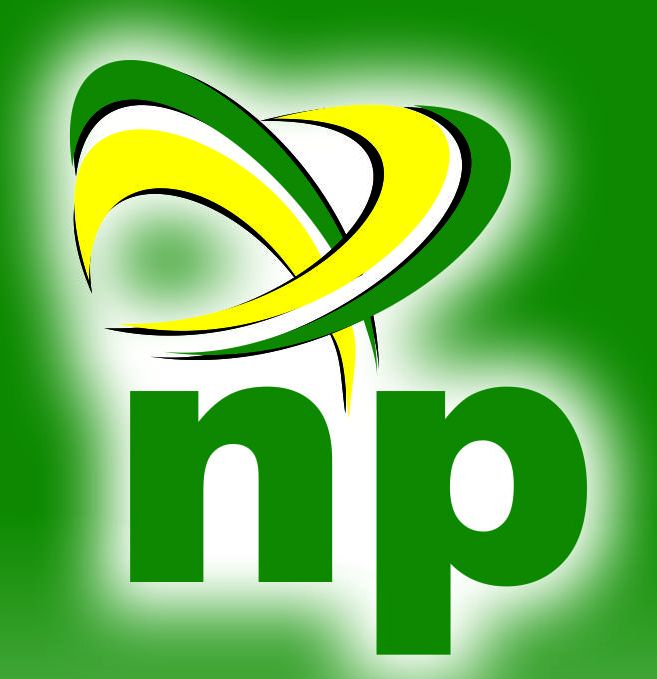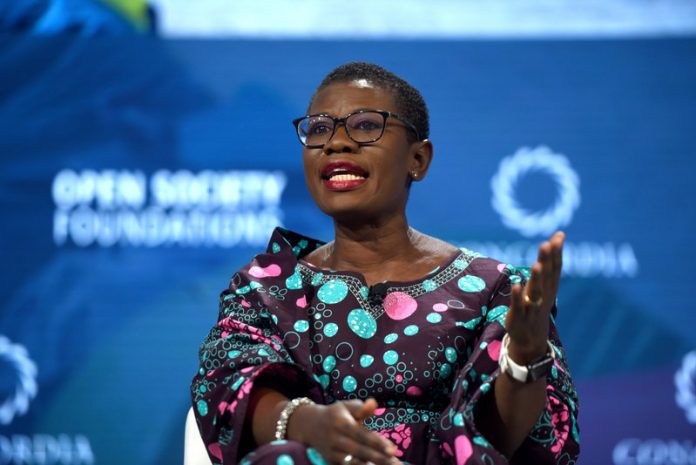By (Chief) Dr. Saio S. Marrah
“Wise men speak because they have something to say, fools because they have to say something” (Plato).
In the dusk of the Agenda for Change, when preparations were underway to unveil the Agenda for Prosperity, I did an ex-post facto analysis of the former agenda which albeit depicted with the best of intentions by the former President (Ernest Bai Koroma); was however punctuated if not utterly perforated with challenges.
The aim of the analysis was to identify the challenges and problems of the Agenda for Change and effectively use them as warning signals for the soon to be hatched Agenda for Prosperity so that the latter will not suffer similar faith as it sister agenda – the Agenda for Change. After that retrospective analysis and in the dawn of the Agenda for Prosperity, I summarized my scientific findings of the research in a piece titled, “President Koroma’s Agenda for Prosperity and Enemies of Progress”. In that piece published in 2013, I argued if not advised amongst other issues the following fundamental points for the consideration of the then president and indeed the consumption of the general public.
I started by pointing out that, “Prosperity for the people of Sierra Leone is President Koroma’s ultimate aim……. but it’s an open secret that President Koroma’s Agenda for Prosperity is highly infested with grave problems emanating from some of his ministers and top civil servants. Whereas President Koroma is talking the talk and working the work of prosperity; very few if any of his Ministers, Directors, Managers and the like are in parallel pace with the President – hence most of the Ministers and key policy implementers are only talking the talk but not working the work of prosperity. Such behavioural pattern by highly placed individuals is not only hypocritical, duplicitous and treacherous to nation building but exceedingly perfidious to the confidence reposed on them by President Koroma”.
I further dilated that, “President Koroma’s remaining years at the helm of power has questionably appeared to some voracious and rapacious government officials – if not all of them as if the world is coming to an end. There is blatant and naked self interest as opposed to national interest; underscoring the cynical but rational assessment of critics that such retrogressive and backward-looking state officials are real enemies of state. Such egoistic, penchant and avaricious attitude of these enemies of state has the proclivity and inclination of tarnishing the unblemished character of the new APC and essentially soiling the legacy of President Koroma. There isn’t any collegiality between and amongst ministers and other top civil servants. Ministers are fighting Deputy Ministers, Managers are against their Deputies, and Permanent Secretaries against God knows who. The only reason I can adduce for such anti-prosperous attitude is my coined phraseology “Corruption Race against time”. Why all this mess? Remember all is vanity, so work hard and leave a legacy”.
As if that was not enough, I further highlighted that, “as the general public (in Sierra Leone) and the International Community are positive and forward-looking towards achieving President Koroma’s prosperity package for the people of Sierra Leone, certain Ministers, Directors, Managers, Permanent Secretaries and others in very important positions are derailing or stalling projects on a daily basis. These groups of trusted individuals have outwitted their usefulness and have virtually become untrustworthy if not entirely futile to the state. President Koroma’s determination and the peoples’ expectations are insidiously sabotaged by these people I will encourage everyone to call “Enemies of Progress”.
In a rather startling and astounding mood, I posited thus; “I am marveled by the grave insatiability, self-indulgence, impiety and absolute lack of patriotism of these enemies of states who are always asking for reward or bribe before they can lift their pen and scribble their unreadable signatures on policies that will bring prosperity to the people of Sierra Leone. These enemies of states are so callous, inconsiderate and thoughtless such that, if their requests are not met, they can stall or rather freeze significant developmental project proposals and eventually discourage investors from doing any further business in the country”.
I concluded the piece by maintaining that “it’s morally and ethically flawed, politically incorrect, economically disastrous and socially untenable if not religiously transgressive and sinful to be a saboteur against prosperity. What an awful, appalling and horrendous way of thinking and doing politics; derailing development in a country that has ravaged and riddled itself in a ten year civil conflict”.
In a relapse of misfortune, it’s saddening and sickening to see the same heinous administrative inaptitude which greatly affected former President Ernest Bai Koroma persist to voraciously eat into the flesh of President Julius Maada Bio’s administration with irreverence and disdain. As the economic situation under President Julius Maada Bio is not only deplorable and terrible but totally despairing, it is but apt to bring to his notice such advice so that he can take prompt actions to ameliorate the situation in the country as the suffering on the people of Sierra Leone is agonisingly unbearable and intolerable.
Since 2018, whenever and wherever we see President Bio delivering a speech either to his people or the international community, he is always gyrating around his Agenda for New Direction. After almost two years of President Bio at the helm of affairs, it appears that his Agenda for New Direction is suffering from “enemies from within” [his SLPP]. The enemies of progress against the Agenda for New Direction are people whom the president have elevated to positions of trust (though myriad of them lack the alacrity and experience) – nevertheless, instead of helping the president to achieve his goals, they are busy pulling him down in the name of fighting against the APC – and the APC aren’t your enemies.
In demonstrating their hate and anger against the APC, top government officials of the Bio administration are adamantly refusing and or rather stampeding potential investments in Sierra Leone simply because such investments or investors are being brought in country by APC supporters or sympathisers. By this way such retrogressive and debased SLPP top government officials think they are fighting against the APC, failing to realise that they are derailing development and by extension frustrating President Bio’s effort in achieving his Agenda for New Direction. Ironically therefore, these back-peddling government officials who are impairing development do not have an iota of idea or credibility to bring any serious investor to Sierra Leone hence the prime factor why the retired Infantry General (President Bio) has been transformed into an Air Borne President.
Having said that, the profound question is, is it really necessary to drop names of enemies of the Agenda for New Direction for the attention of President Bio and the general public? I don’t think so. Why do I negate? I say so because, by now President Bio should have known his “enemies from within” his SLPP who are by extension “enemies of progress” against his Agenda for New Direction. I hold that, those educated fools that are preaching tribalism and sectionalism with the aim of ostracizing other Sierra Leoneans who are not SLPP supporters are merely being hedonistic, epicurean, self-indulgent and disingenuous. The current economic adversity in Sierra Leone is been exacerbated by such cronies of President Bio who are actually “enemies from within” and essentially “enemies of progress”.
Mr. President, the APC is a matured political party enthralled and engrossed with patriotism and nationalism. The APC is a socialist nurtured and driven political party whose main objective is the development of the people and the country as a whole. Had you embraced and worked with the APC, the country’s economy wouldn’t have been in such a cluttered and messy situation. It is not the wish of the APC to see President Bio fail. Why do I say this? It is logically clear that if the president fails it’s the people of Sierra Leone that will suffer and perish and not the president. In light of this therefore, as development is an ongoing process, it was and persists to be our wish for President Bio to succeed in achieving all his goals hence taking Sierra Leone a step further in our developmental gait. But this will never be possible without bringing the APC onboard in Parliament, local government, the private sector and the like. Mr. President, beware of blind and parochially minded cronies because as Les Brown cautions, “people who can’t see for themselves can’t see for you”. Let me conclude with Machiavelli’s insightful but brute reality that, “when you betray the people, you commence to offend them and show that you distrust them either through cowardice or lack of confidence and both of these opinions generate hatred”. Mr. President, if you do not change the direction of your new direction, you may end up where you are heading.


